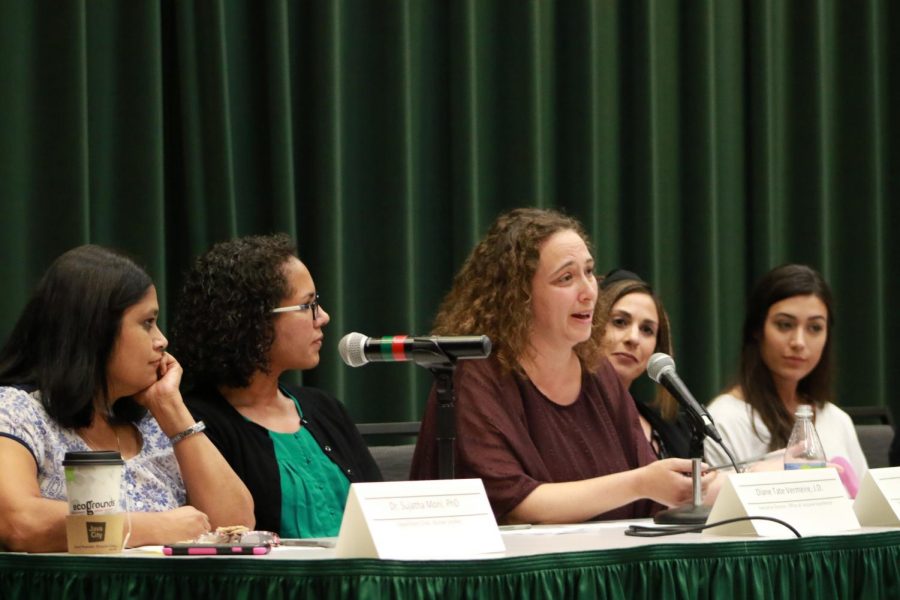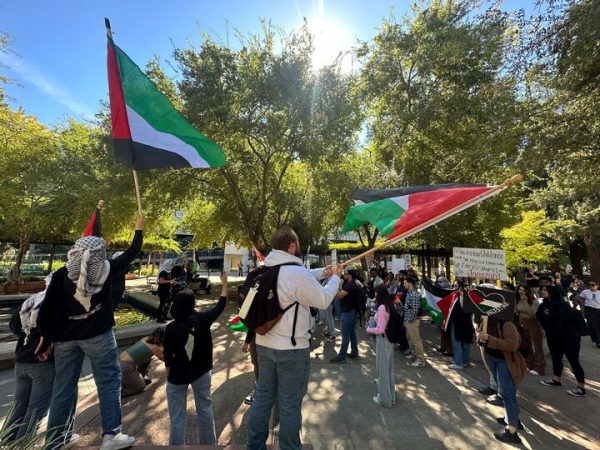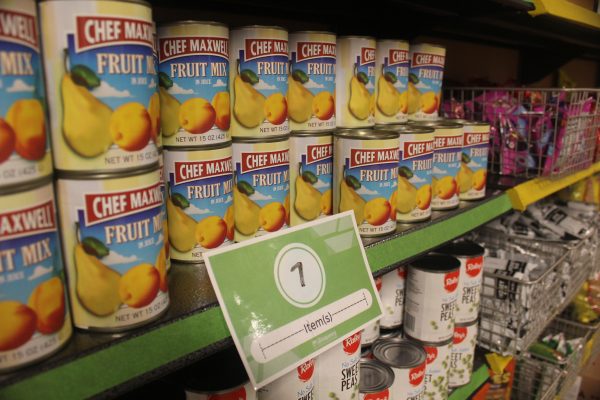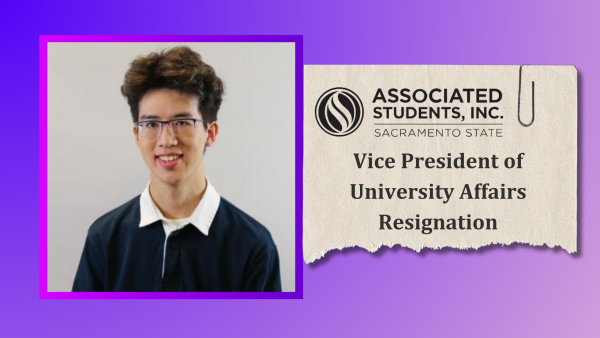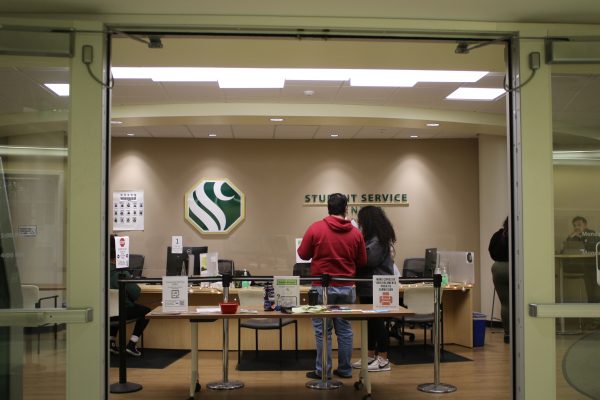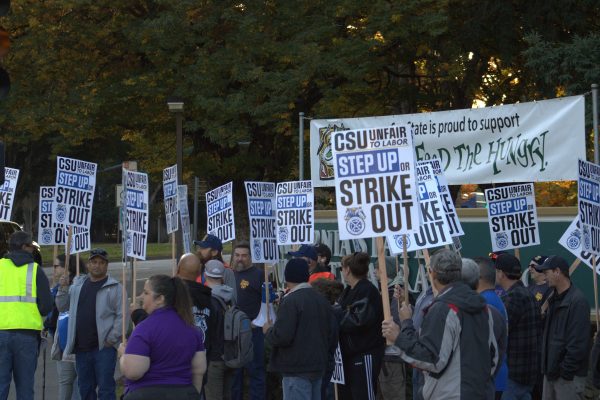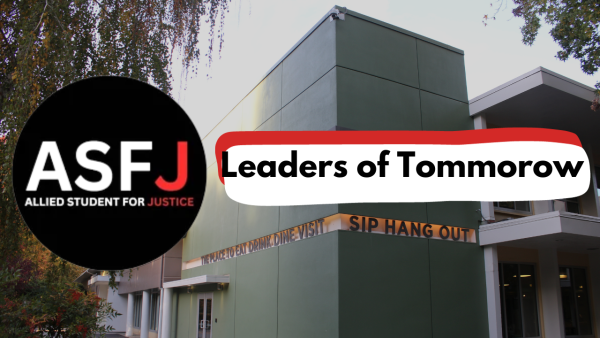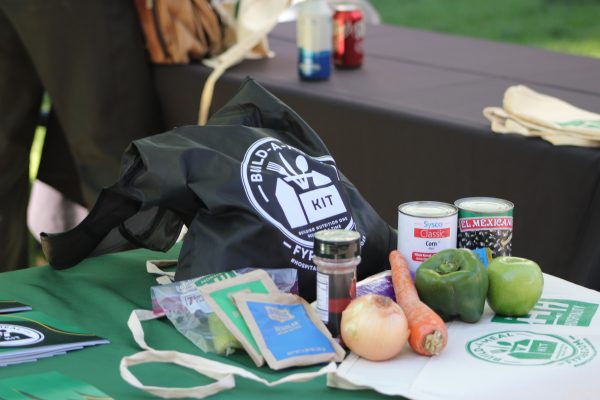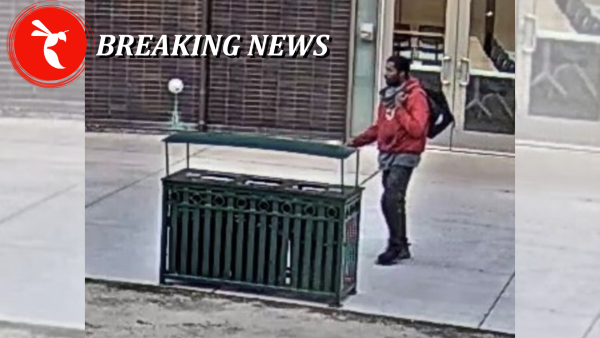Panel of Sac State campus members discuss Kavanaugh confirmation
Discussion topics covered both the impact on the #MeToo movement along with the new justice’s partisanship
Will Coburn - The State Hornet
Sujatha Moni, Diana Tate Vermeire, Beth Lesen, Alexa Sardina and Makenzie Neves discuss with students the ramifications of the appointment of Brett Kavanaugh to the U.S. Supreme Court. Panelists discussed concerns with Kavanaugh’s partisanship and temperament and compared the treatment of Christine Blasey Ford to Anita Hill.
October 10, 2018
A panel of seven female professors, faculty and a student representative from Sac State discussed the confirmation of controversial Supreme Court Justice Brett Kavanaugh, who was accused of sexually assaulting several women.
The event was hosted by Associated Students, Inc. and the Center for Diversity and Inclusion and moderated by Aisha Engle, the coordinator of the Women’s Resource Center.
“Our hope is to create a space for the community of Sac State to talk about the recent Supreme Court nomination and to provide space for students and faculty to voice their concerns,” Engle said to the room before the event started.
Due to the nature of the allegations against Kavanaugh, Engle said she wanted to make sure students were aware of the resources available for sexual assault survivors on and off campus.
Some students said they came out of curiosity and sense of community like political science major Samantha Elizalde.
“I really want to hear the opinion of others, maybe see another outlook on the conversation,” Elizalde said. “I don’t know, it’s like I don’t know what to believe now, or what faith I should put in the Supreme Court.”
Other students like social science major Matthew Lung said he came on recommendation from his government teacher. Lung said he had mixed feelings about the Kavanaugh vote.
“It was like people were looking for something against him all the sudden,” Lung said.
However, Lung also said that he felt the FBI’s investigation into the allegations was “pretty fast, just one week long.”
The only student on the panel was Makenzie Neves, Panhellenic Sorority Council President, who said she thinks events like this provide important moments of visibility and solidarity for the community.
“I think that everyone is discouraged right now,” Neves said. “To be rallied around, and supported by so many women who feel the same way, and who are pulling their information from factual interviews and things like that, was really awesome to hear.”
Dean of Students and Associate Vice President of Student Affairs Beth Lesen was also on the panel. Lesen said she thought the panel discussion was in-depth and engaging but she wished that there was more time for engagement with the students in attendance.
“More than anything, I want to be sure the campus is responsive to current events,” Lesen said.
Some of the attendees said they agreed with Lesen’s sentiment in wanting more time for conversation. Grace Brown, a criminal justice major, said this is her first semester at Sac State, and she felt that there were people in the audience who disagreed with the panel’s conclusions but didn’t have the skills to communicate their disagreements well.
“It would have been a lot more interesting if they had someone who disagreed [on the panel,]” Brown said. “It would have been a better discussion if there were different opinions.”
Sujatha Moni, the department chair of Women’s Studies, expressed concern with Kavanaugh’s ability to rule on any cases regarding sexual assault going forward.
“The partisanship he showed was very concerning,” said Diana Tate Vermeire, executive director of the Office of Inclusive Excellence. “He has a long history of working with one political party.”
Another topic panelists discussed was how Kavanaugh’s confirmation will affect current social movements like the #MeToo movement.
“The confirmation has been very detrimental to survivors who have not come forward yet, it tells survivors your voice doesn’t matter,” said Alexa Sardina, a professor of criminal justice who spoke on the panel.
Moni pointed out that those movements are gaining momentum globally, and didn’t see their rise as ended or contradicted by the Kavanaugh appointment.
“Every time there is an uprising in the women’s movement, there is a backlash,” Moni said. “This is just the backlash.”


























































































































